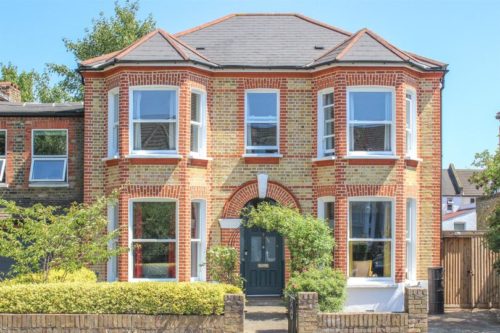
A landlord not doing repairs can be frustrating, but it can also cost you money that you shouldn’t have to pay, and even cause distress. This is your home and you should be able to live in it without these hassles.
Unfortunately, a landlord can refuse repairs and there can be much confusion over which party is responsible for what. So, if you’ve got problems with a landlord not doing repairs that you think they should be doing, read on to discover what you can do about it.
Landlords that use a property management agency are less likely to refuse repairs because it’s part of the service organised on their behalf. The property management company can also advocate on behalf of a tenant. However, the property management company cannot take decisions by themselves as the Landlord remains the property owner.
Rent with Stanfords to choose reputable landlords.
Landlord not doing repairs – where do the responsibilities lie?
First of all, let’s go through what repairs are your Landlord’s responsibility. As an example, a landlord trying to charge you for repairs may be within their rights if you have intentionally damaged the property. However, most repairs should be covered by the landlord.
The landlord must undertake most major repairs. This includes:
- Structural repairs, such as repairs to the roof, windows and doors.
- All larger plumbing and electrical repairs.
- Repairs to plumbing fixtures such as toilets, baths, showers and sinks.
- All heating and hot water repairs, including the boiler.
- Repairs to ensure safety of gas and electrical appliances that are supplied with the property, such as cookers and washing machines.
There are a few things which you are responsible for as a tenant. For example, it’s your responsibility to change light bulbs when they stop working or fuses if they need replacing and batteries in the smoke alarm when it starts to beep. You might be responsible for repairing damage and breakages you’ve caused, but you won’t be responsible for damage caused by others, such as vandalism.
Repairs around damp problems are a very grey area. Most of the humidity inside a property is the result of choices made by the occupant – inadequate ventilation in a property which is exacerbated by too much or too little heat can lead to high levels of humidity and damp. In these instances, repairs and redecorations as a result will be down to the tenant. However, if repairs need to be done because of a leaky pipe or penetration as a result of an external issue then they will likely be responsible for this.
If you’re unsure whether repairs are covered by your landlord, checking your tenancy agreement is a good starting point. You can also get in touch with Citizens Advice if you need advice.
How long does a landlord have to do repairs?
Fundamentally, a landlord not doing repairs that make the property unfit for human habitation through no fault of your own is wrong. Your property should be safe and meet basic standards around things such as temperature, water supply or infestation.
If you notice that repairs need doing, you should write to your landlord as soon as you notice the problem, notifying them that repairs are needed. If the landlord uses a property management service, then you can write to them. An email is fine.
Landlords are meant to complete repairs in a ‘reasonable’ amount of time. What’s reasonable for one repair is different for another. So, if your landlord doesn’t repair your boiler for weeks, for example, this is unacceptable as this is an urgent repair. However, it might be reasonable for them to take a less urgent approach to fixing something like a minimally leaky tap.
Your landlord should give you at least 24 hours’ written notice before coming to do repairs or inspecting damage, unless it is an emergency.
If your landlord is still not doing repairs after you’ve notified them, we recommend you collect some evidence. Collect evidence like photos of the problem (especially if it’s getting worse), copies of any communications with the landlord or property management service, or letters from your GP if you’ve become ill as a result of the repair not being done. Also keep hold of any receipts for things you’ve had to pay for, including replacing damaged items.
If your landlord is still not doing repairs
Even if your landlord is not doing repairs, you must keep paying your rent.
You can ultimately go to court if your landlord refuses to do repairs. You’ll need all your evidence and there are standard forms you can complete. Even just submitting these might be enough to motivate the landlord to do the repairs, as if the court goes in your favour, you may be awarded compensation.
You can also complain about your landlord to your local council Environmental Health if the property is unsafe or making you ill. This might cover things like infestations, mould, or gas leaks. They will take steps on your behalf, especially if there are children, disabled or elderly in the property.
They may be able to arrange temporary accommodation for you, even if you are renting with a private landlord. Local councils should make decisions quickly and if you don’t agree with their decision, you can always ask them to reconsider. It would be worth adding additional evidence at this stage.
It’s always best to try and keep things amicable with your landlord and encourage them to complete the repairs without further action. Renting a property from a landlord that uses a property management service can really help ensure tenants get repairs done as needed.
Choosing your landlord as well as your property
We always advise potential tenants that they are choosing the landlord as well as the property when they move. Ask questions at the viewing about the landlord and their reputation for how they handle repairs. You can ask if they use a property management service to ensure that repairs are organised quickly and efficiently.
Ultimately, if your landlord is refusing repairs in the UK, you should move at the end of your tenancy. There are far better landlords and properties available.
Looking for somewhere to rent with reliable landlords? Find out more about renting with Stanfords.
